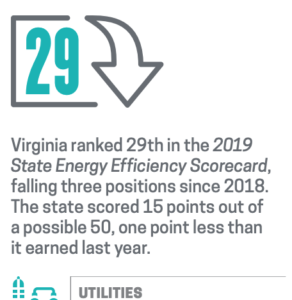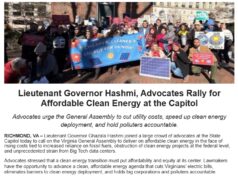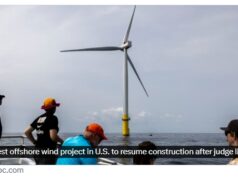By A Siegel
The simple truth: the Commonwealth of Virginia (its businesses, its citizens, its built environment, …) is an energy hog with mediocre (perhaps even dismal) energy efficiency.

- The American Council for an Energy Efficient Economy (ACEEE) ranked Virginia 29th in the nation.
- According to WalletHub, Virginia’s Home Energy Efficiency Rank is 35th … out of 48 assessed states.
Simple truths behind those numbers are one of the reasons why legislators made sure to include substantial energy-efficiency measures in the Clean Economy Act (VCEA). While the VCEA sets a better path forward, it isn’t comprehensive across all the economy and its measures don’t relieve other parties’ responsibilities for acting responsibly in the interest of the Commonwealth and its citizens.
So much that matters in our lives is shaped out of sight, out of mind for most of us. When boarding a plane, we assume that the plane’s design has been improved and there are inspectors out there making sure it’s safe to fly. The same is true with so much throughout our lives — from washing machines to automobiles to elevators to … Well-managed standards and regulations are critical to our ability to function in the complex reality of modern society.
This is certainly true when it comes to buildings — standards and regulations lay a minimum basis for what will be around for decades to come. From structural soundness to fire safety to electrical wiring to energy efficiency, quality building codes are key to a quality built environment. And, as per energy efficiency, since buildings account for roughly 40% of energy use and the buildings will last for decades — poor energy efficiency codes translates to decades of wasteful energy use with higher bills and higher pollution loads.
One reason for Virginia’s poor energy efficiency rankings: a long history of lagging behind the curve when it comes to International Energy Conservation Code (IECC). Currently, Virginia’s code is based on the 2015 IECC (not the 2018) with critical portions of Virginia code dating back to the 2012 code and even the 2009 code. A decade is, in today’s world, an eternity when it comes to energy efficiency and technologies. Just a few examples for an understanding:
- In 2009, the extremely efficient LED lights were an expensive and rare luxury while they are the norm in building today.
- In 2009, induction stove-tops were incredibly expensive (many $1000s) and hard-to-find while one can buy portable induction stovetops for under $50 online today and have them at your house tomorrow.
- In 2009, home owners had few options for managing their hot water heaters while today Virginia small business Aquanta offers a “retrofittable water heater controller brings your electric or gas water heater out of the basement and into the palm of your hand to heat water only when you need it.”
The idea of having a building code in the 2020s based on over 10-year-old technologies and processes is ludicrous.
Virginia’s regulator, the Department of Housing and Community Development (DHCD), of building code is in the process of determining what should happen with the code. Rather than simply upgrading to the latest IECC (2018), it appears quite possible that the DHCD will simply continue many of the outdated elements of the existing code. (Here is the proposed revised code. On it, see Ivy Main’s eloquent discussion.) Among those is to keep Virginia on the 2009 insulation standard rather than moving up something closer to present day standards. Regretfully, there are special interests (e.g., builders) who are perfectly willing to lower their costs for higher profits while delivering a lower-quality and higher-cost product to people for decades to come. The DHCD, evidently, has given builders and contractors a leading voice (role might not be too strong a word) in structuring Virginia’s building code. The DHCD’s approach to the IECC appears to be ‘explain why we should upgrade’ rather than ‘make the case why we shouldn’t’. This facilitates putting energy efficiency on the back burner. Quite simply: this is unacceptable.
This isn’t “just about climate” but quite clearly about acting in the best interests of Virginia’s citizens and communities. For example, as Andrew Grigsby thoughtfully makes clear in his comment to the DHCD, advancing to current insulation standards has a rapid (perhaps 5 years) payback and would save an average home owner more than $5000. Energy efficiency investments are ‘no brainers‘ that, sadly, few home purchasers really have a say about: it’s all about the code.
With that in mind, some thoughts for DHCD:
- adopt the 2018 code essentially in entirety, especially when it comes to insulation.
- set (as per law) standard practice to adopt the most up-to-date codes s the norm — with active decision-making to not adopt require.
- accelerate code updating so that 2021 IECC becomes Virginia code in 2022 (rather than 2024
- require up-to-date standards for building renovations and rehabilitation (especially in rental stock)
In summary, DHCD should recognize that aggressive energy efficiency measures are in the public interest (from improved energy resiliency to reduced energy costs to reduced climate impacts) and that the legislature and the Governor have made clear that energy efficiency and climate mitigation are important for the Commonwealth. By adopting the 2018 building code and not keeping insulation at 2009 standards, the DHCD could demonstrate that recognition.
The DHCD is well along the path toward setting the code. The final public hearing is tomorrow morning and the public comments period ends tomorrow as well.
Make a Public Comment
Advocating for an
Energy Efficient Virginia Building Code
There are few public comments as of writing this post. Either via the Virginia Sierra Club or directly to DHCD, add your voice to those calling on DHCD to do the right thing and help foster an energy-efficient Virginia.


![VA DEQ: “pollution from data centers currently makes up a very small but growing percentage of the [NoVA] region’s most harmful air emissions, including CO, NOx and PM2.5”](https://bluevirginia.us/wp-content/uploads/2026/01/noxdatacenters-238x178.jpg)








